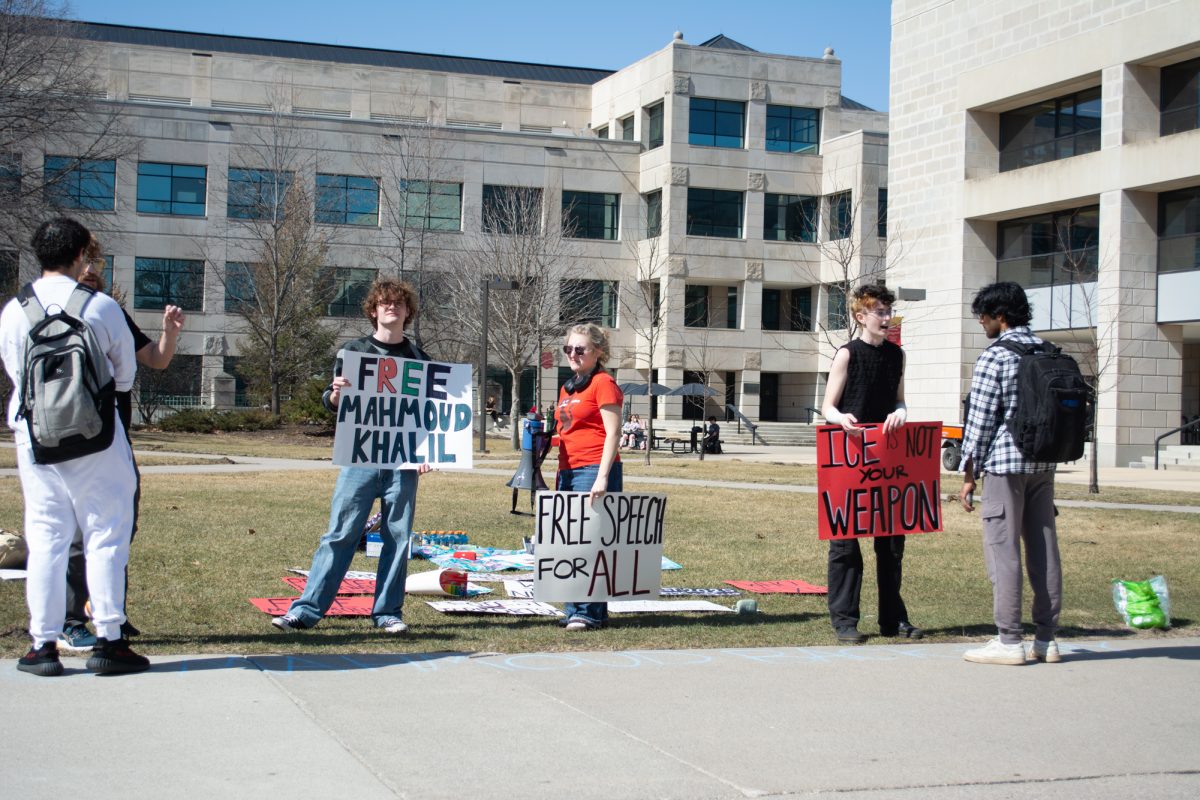Ebonics is a useful language
January 15, 1997
Peep what I say: people’s isms are a trip.
As a child growing up in inner-city Chicago and the son of a university educated mother, there were always two extremes as far as verbal communication went. In our house you knew what you could and could not say. Don’t get me wrong, I didn’t live inside an English class or anything like that, but let’s just say my mother had her limitations.
I lived in a world of two languages, one as close to standard as I could make it and the other a little bit different. Black English or Ebonics (take your pick) was never disallowed in our home; in fact, it was taught. But never at the exception of standard English.
It would be hypocritical of anyone to not acknowledge a form of communication that he or she has used and still does use from time to time. There is a proper way to speak English, but it is not the only way.
So when people start raising a stink that black English should not be recognized as a language, I get a little pissed off.
I have always been under the impression that the English language evolved from other languages. Maybe it’s just me but the last time I looked in a Webster’s every other word has its origin somewhere in old Latin.
Black English is merely a form of the American English language. Much like Creole is a form of French and Mandarin is a form of Chinese. Every language on the planet has it’s variations.
English itself is different in other parts of the world. British, Americans and Jamaicans all have their variations on the English language.
In fact, English isn’t even the same in different parts of America itself.
We, as Americans, are at times so arrogant and ridiculous about our language. We are quick to make fun of anyone who has problems with our vernacular.
Think about how many times you have shouted “Learn to speak the language” or even made fun of someone from another country because he or she couldn’t pronounce words like “library” or “multi-functional.”
We have all done it. Without thinking, we have all done it. Not remembering how much trouble we have with words like cinnamon, synonym, or even spaghetti.
The truth is, black English is truly a language of its own. It has its own syntax, vernacular, sentence structure and even a dictionary.
There are plenty of people who will doubt this opinion, but that’s the way the mop flops, I guess.
To those skeptics I offer this little measure of proof: My very first semester way back in 1992 I was sitting in the dreaded 8 a.m. Psych 101 class.
My roommate and myself were sitting in class talking amongst ourselves not aware of anyone else listening to us.
After class a young, white female who had been sitting behind me walked over to us and politely asked what we were talking about. Not that she was eavesdropping or anything, but she noticed that she couldn’t understand a single, solitary word of anything we said. It hit me that we were not talking in “standard” English. Instead, we were speaking in Ebonics.
It must be remembered that Ebonics evolved from the language of slaves trying to learn the American language. The different vernacular and syntax have been called “just having a lazy tongue,” which in some ways is true, but it is still a form of communication that has stood the test of time.
From meek beginnings it has turned into more of a code for blacks to talk to each other and only to each other. It is still prudent in everyday society and particularly in the African-American community.
Black people talk an entirely different way when at home, in the bosom of family and friends, than they do when at work or school. It involves more than the perceived incorrect grammar and improper sentence structure.
Ebonics is more than the mis-conjugation of the verb “to be” or the dropping of final consonants from words (“hand” becomes “han” and “good” becomes “goo”). It is a form of communication that consists of words that have special meanings to those who understand them.
Ebonics has itself influenced the English language. It has given us words like jazz, dope and fresh. It has even made use of already present words like stupid, crazy and bad, and given them entirely different meanings.
I will not say that Ebonics is correct English; not at all. What I am saying is that it is a form of our language.
Even if it is only considered a dialect, that is fine, but we cannot dismiss it as unwanted or not useful.
It is a useful tool for learning correct English. And if the Oakland school board feels that it can use the techniques of black English to improve the learning of young, black minds, why fight it? Being a young, black mind myself, I am all for it.
But then again, that’s just my opinion.
I’ll hit back, holla if ya hear me!
Rhaason Mitchell is a junior in journalism and mass communication from Chicago.






